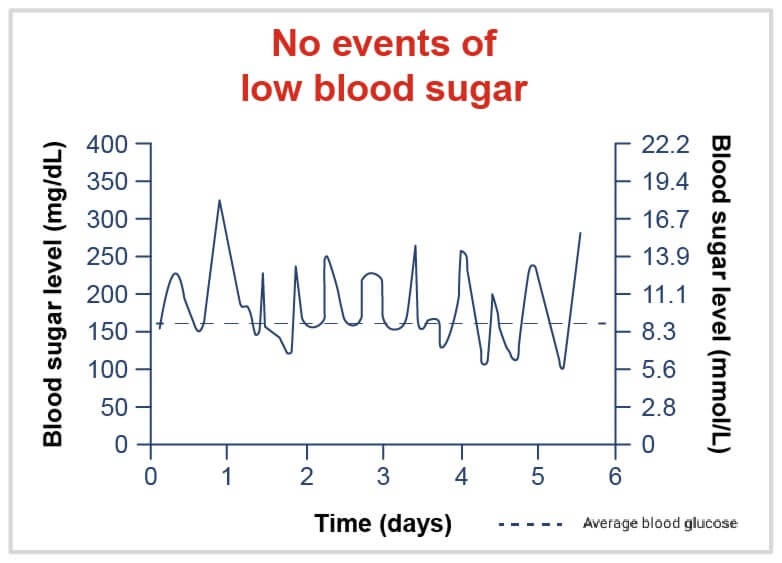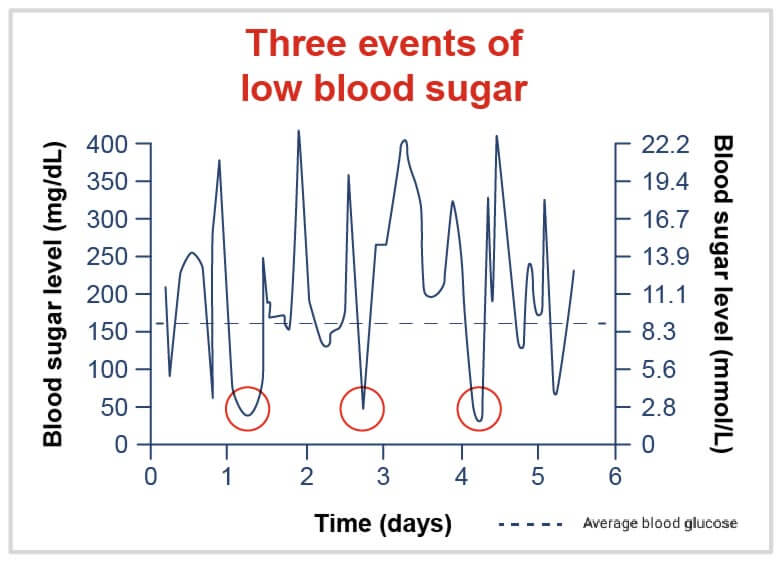
Causes of Severe Low Blood Sugar
What Causes Severe Low Blood Sugar?
You may have a severe low blood sugar event for several reasons, and many of them are out of your control. But understanding why a severe low blood sugar event may happen in the first place can help you feel more in control—and potentially help you recognize low blood sugar before it becomes severe. Some common causes of severe low blood sugar include:

Taking too much medicine or taking the wrong medicine

Missing a meal or not being able to eat enough

Medicine that may increase the risk of low blood sugar(for example, insulin,glimepiride, or glipizide)

Exercising vigorously or for a long time

Eating foods that are high in fat and low in carbohydrates

Drinking alcohol

CGM* readings that are not accurate

Other medical conditions (for example, kidney disease)
*CGM=continuous glucose monitor
Learning About Your Own Low Blood Sugar Events

If you’re having low or severe low blood sugar events, but you don’t know the reasons, try the tips below. They may help you learn more about what’s causing your low blood sugar.
Keep a logbook (hand written or electronic) every day, or as often as you can. You can write down your:
- Blood sugar levels
- Medicines you take
- How often and how much you exercise
- Foods you eat and alcohol you drink
Think about your previous low or severe low blood sugar events. Write down any early warning signs or symptoms you noticed. Also, write down any changes in your daily activities around the time of low blood sugar events.
Discuss your logbook, and CGM data if available, with your healthcare provider. They may be able to help you see trends related to your low blood sugar event
Blood sugar traces of two people with the same A1C of 8.0%


Review Your Knowledge
References
- 1O’Reilly JE, et al. Diabetologia. 2021;64(1):S1-S380.
- 2EASD 2021 (European Association for the Study of Diabetes), September 27-October 1, 2021; Virtual; Day #2 Highlights.
- 3Kedia N. Diabetes Metab Syndr Obes. 2011;4:337-346.
- 4Lammert M, et al. J Med Econ. 2009;12(4):269-280.
- 5American Diabetes Association. Diabetes Care. 2021;44(1):S73-S84.
- 6Lipska KJ, et al. Diabetes Care. 2013;36(11):3535-3542.
- 7Frier BM. Nat Rev Endocrinol. 2014;10(12):711-722.
- 8Kovatchev B, et al. Diabetes Care. 2016;39:502-510.
- 9American Diabetes Association. Hypoglycemia (low blood sugar). https://www.diabetes.org/
healthy-living/medicationtreatments/
blood-glucose-testing-and-control/
hypoglycemia. Accessed November 1, 2021. - 10Cox DJ, et al. Diabetes Spectr. 2006;19(1):43-49








